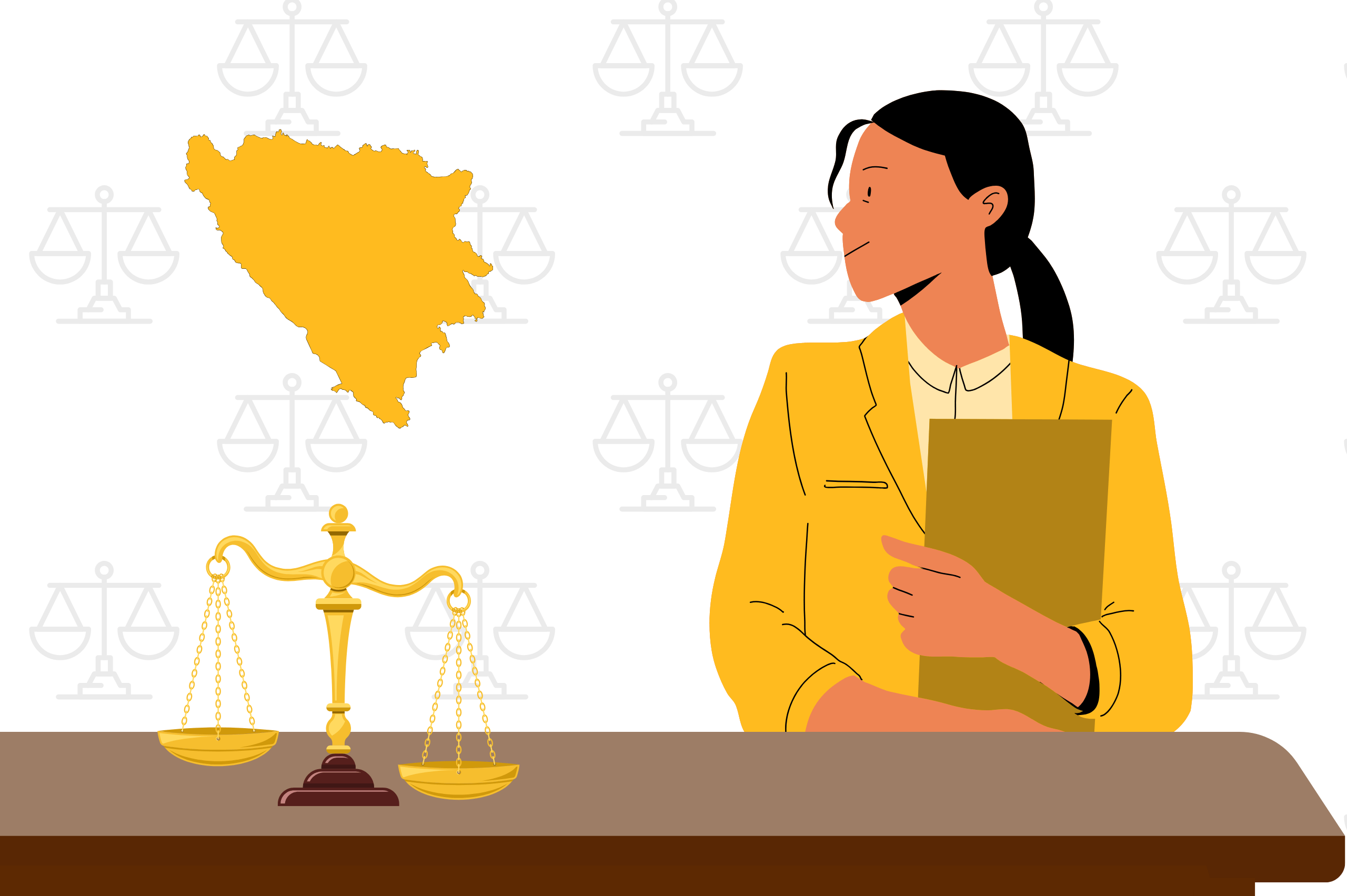
Bosnia and Herzegovina’s legal profession is shackled by archaic rules that ban lawyer advertising—a relic from 19th-century England that’s doing more harm than good. These restrictions not only stifle competition but also keep the public in the dark about their legal options. While the European Union has moved toward more liberal advertising policies, benefiting both new lawyers and consumers, BiH remains stuck in the past. It’s time to lift the ban, embrace transparency, and open up the legal market for the good of all.
The Outdated Rules That Hold Us Back
In 2019, the Federation of Bosnia and Herzegovina’s Bar Association sought advice from the Council of Bars and Law Societies of Europe (CCBE) about its restrictive advertising policies. The CCBE found that these bans were out of step with the European Code of Conduct, which allows lawyers to advertise their services as long as they’re truthful and not misleading. This finding is part of a broader trend in Europe, where many countries have recognized the need for more openness and competition in the legal market.
The Push for Change
The European Court of Human Rights (ECHR) has provided strong arguments for liberalizing lawyer advertising. The Court emphasizes that restrictions on advertising must be proportional and serve a legitimate purpose, such as protecting the integrity of the profession and the public interest. However, these limitations should not be so strict as to violate the freedom of expression guaranteed by Article 10 of the European Convention on Human Rights.
In cases like “Casado Coca vs Španije” and “Van Vondel vs Nizozemske”, the ECHR ruled that while regulation is necessary, it must balance professional ethics with the public’s right to information. These cases underscore the need for proportionality in restrictions—rules should not be more restrictive than necessary to achieve their legitimate aim.
Shift Toward Openness
The European Union has gradually relaxed restrictions on lawyer advertising, recognizing that ethical advertising can improve public access to legal services, foster competition, and ultimately benefit society as a whole. In countries where advertising is more liberal, the legal profession has not only survived but thrived. New lawyers have a better chance to establish themselves, and the public is better informed about their legal options.
Why BiH Needs to Act Now
Bosnia and Herzegovina is at a critical juncture. By adopting a more open approach to lawyer advertising, the country can create a more competitive and transparent legal market, enhance public understanding of legal services, and align itself with EU standards. Walking the ethical line isn’t easy, but the rewards—greater access to justice, lower costs for consumers, and a more vibrant legal profession—are well worth the effort.
Legislative Inaction: A Missed Opportunity
Despite these compelling arguments, efforts to raise the issue with BiH legislators have so far been unsuccessful. The same outdated concerns about protecting the profession’s integrity and avoiding “commercialization” have been used to justify maintaining the status quo. However, this reluctance to modernize is out of step with global and European trends, where controlled, ethical advertising is increasingly seen as beneficial.
The Risks of Staying Silent
The current ban on advertising doesn’t just limit competition; it also prevents new lawyers from building their practices. Research from the OECD and other organizations shows that advertising restrictions don’t improve service quality. Instead, they reduce competition, leading to higher costs and fewer choices for consumers. By maintaining these outdated rules, BiH is not protecting the public but rather perpetuating a closed market that benefits only the established players.
Aligning with Modern Standards
Countries like the United States, Croatia, France, and Germany have already taken steps to liberalize lawyer advertising. In the U.S., such advertising is protected under the First Amendment, with regulations ensuring it remains truthful and non-deceptive. Even within the EU, where regulations are generally stricter, there is a clear shift toward openness and transparency.
For Bosnia and Herzegovina, aligning with EU standards by easing advertising restrictions is about more than modernization—it’s about fairness, competition, and better service for the public. Allowing lawyers to responsibly advertise their services can lead to greater public access to legal help, lower costs, and a healthier, more competitive environment.
The Time for Change Is Now
The time has come for Bosnia and Herzegovina to break free from outdated constraints and embrace a future where transparency, competition, and public access to legal services are prioritized. Deregulating lawyer advertising is a crucial step toward aligning with EU standards and ensuring the legal profession in BiH can thrive in a modern, competitive landscape.
By lifting the ban, BiH can ensure that its legal market serves the public interest, fosters healthy competition, and provides opportunities for all legal professionals—both established and new. The question isn’t whether BiH should follow this path; it’s why it hasn’t done so already.

